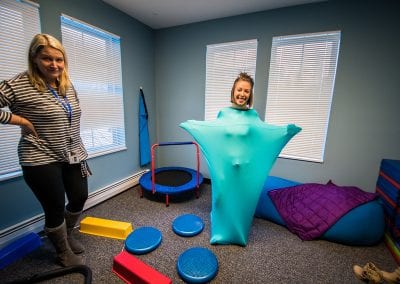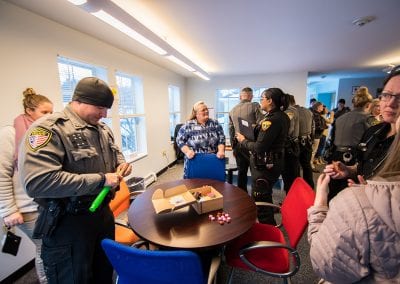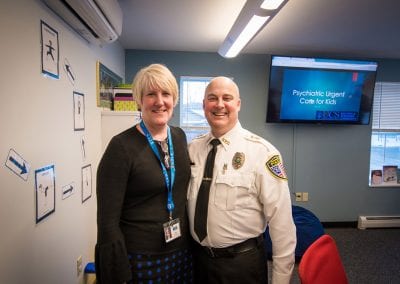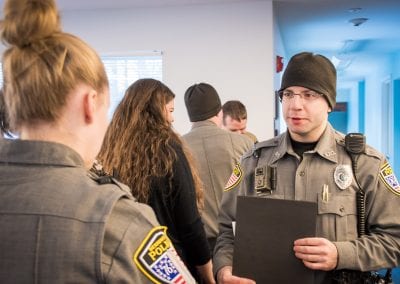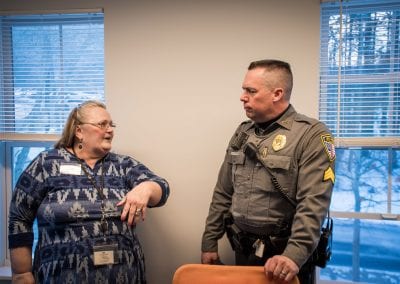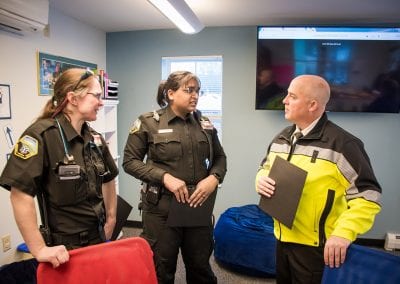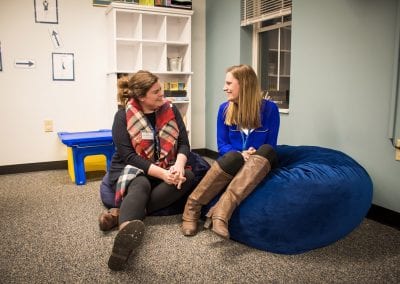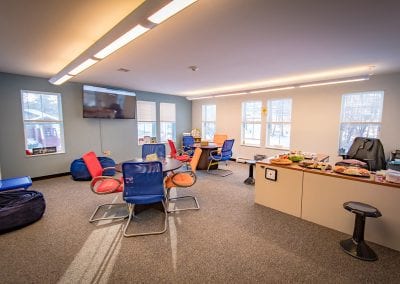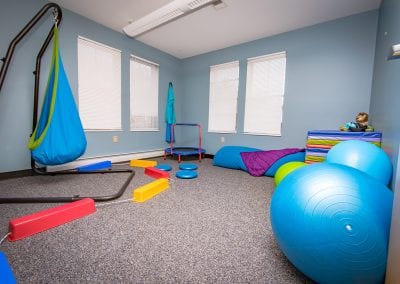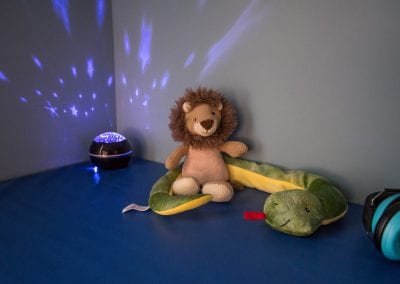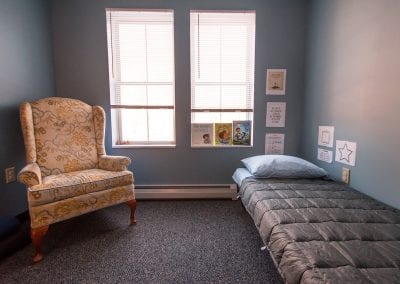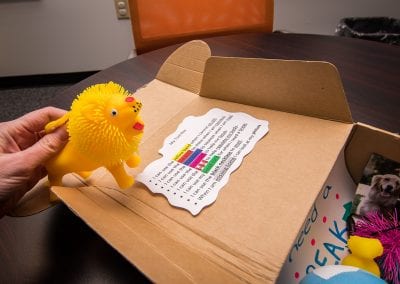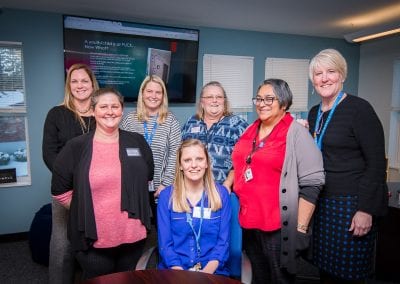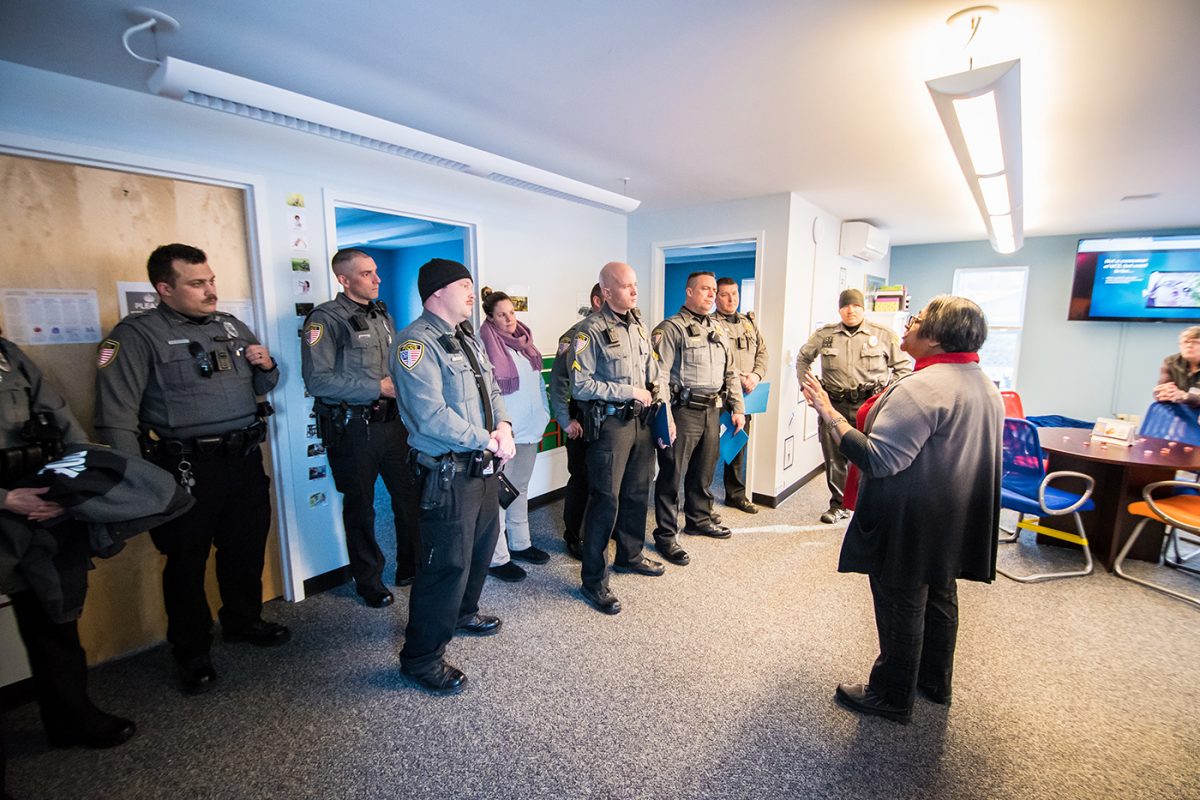
Pictured above: Kheya Ganguly, assistant director of Youth and Family Services at UCS, welcomes officers of the Bennington Police Department to the PUCK Open House in January 2020.
Psychiatric Urgent Care for Kids (PUCK) is an innovative concept in action in Bennington County – the very first of its kind in the state of Vermont.
PUCK provides a safe alternative crisis intervention site for elementary-aged children who are in mental or psychological distress at school to keep them out of the emergency department (ED).
PUCK is a joint effort of United Counseling Service (UCS) and Southwestern Vermont Medical Center (SVMC) and is funded through the Innovation Fund grant from OneCare Vermont.
Community members such as police officers, counselors, emergency response personnel, and staff from local schools were invited to an open house to tour the PUCK space in UCS’s Youth and Family Services Center in Bennington, Vermont on Wednesday, January 22, 2020.
When you walk into the space that houses PUCK – the immediate impression is sunny, welcoming, and home-like. The space is well-stocked with kid-friendly activities, games, toys, books, and sensory tools. The facility also features a sensory therapy room with various tools – a swing, weighted blankets, tactile items, mood lights, sound-blocking headphones, and other inviting items. Another room functions as a quiet space with a bed, comforting signage, an armchair, soothing mood lights, and other materials to create a calming environment.
PUCK was created to directly address the issue of increasing utilization of the emergency department by youth in crisis, and the negative consequences associated with this trend. Local schools in Bennington County were seeing a spike in the number of kids in crisis at school that were transferred to the ED. In the fourth quarter of 2018 alone, UCS reported assessing 294 children and adolescents with psychological distress at SVMC’s emergency department. In addition, UCS and SVMC recognized that trips to the ED can be traumatic for children in behavioral or psychological distress, and also that transporting them to the ED created a bottleneck on community resources.
Lorna Mattern, executive director of UCS, and Jill Maynard, RN and director of Emergency Nursing at SVMC, had discussed the need for a program like PUCK. When OneCare’s Innovation Grant program was announced, the two organizations worked together to create the model and apply for funding. Mattern said: “It was really exciting for us that we received the grant … all this just wouldn’t have happened without the grant.”
PUCK’s primary goals are to be an alternative to the emergency department for elementary-aged children in psychological distress, to reduce the level of adverse experiences that children face by limiting law enforcement encounters and ED visits, to help free up resources (e.g., the time of the police, available beds in the emergency department,) to help children re-enter and to stay in school, and to create effective treatment plans.
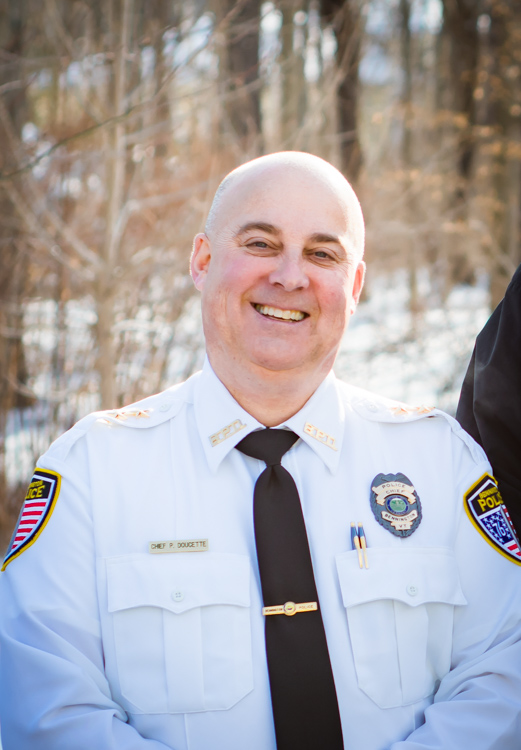
The emergency room just is not a place for kids that are in crisis. We have experienced it numerous times where we’ve got to go to the schools and take kids. It’s just not a pleasant experience and it’s not how kids should get to meet the police for the first time. So we’re excited about this.
Typically, a police officer who brings a child to the ED will have to stay with that child for a significant amount of time, according to Bennington Police Chief Paul Doucette. “A big piece for us is when we bring that child to the ED, we sit with them. The ED is wonderful – the staff do an amazing job – but you can’t take an RN and put that nurse in the room to sit with a child the entire time when you’ve got someone coming in with a stroke or heart attack … that they have to tend to, and so sometimes we [the police] sit for hours, depending on [the situation].”
PUCK has the adamant support of Bennington’s police department. “The emergency room just is not a place for kids that are in crisis. We have experienced it numerous times where we’ve got to go to the schools and take kids. It’s just not a pleasant experience and it’s not how kids should get to meet the police for the first time. So we’re excited about this,” said Doucette.
Local school officials also voiced enthusiastic support for PUCK. Donna Cauley, principal of Monument Elementary School said, “It is a success. We’ve had many children go through the program and I think there are key elements systemically that have helped.”
Cauley described how PUCK has allowed families to get the help and resources they need more quickly, including from Alya Reeve, MD, MPH. Dr. Reeve is medical director for UCS where she oversees clinical psychiatric services and provides guidance to staff. “One of them is that the PUCK program provides access to families to Dr. Reeve, pediatric neurologist. She is that specialist in our community—she’s the only specialist in pediatric neurology, and so it would take months if not a half a year for our families to access her. They have access on the same day [with PUCK] from her or her nurse practitioner. That’s huge.”
The new way of handling these cases [through PUCK] is better for children and families, because the treatment matches their needs more closely. In addition, it improves care for all by making better use of the emergency department, freeing it up for patients who need the type of care it is equipped to provide.
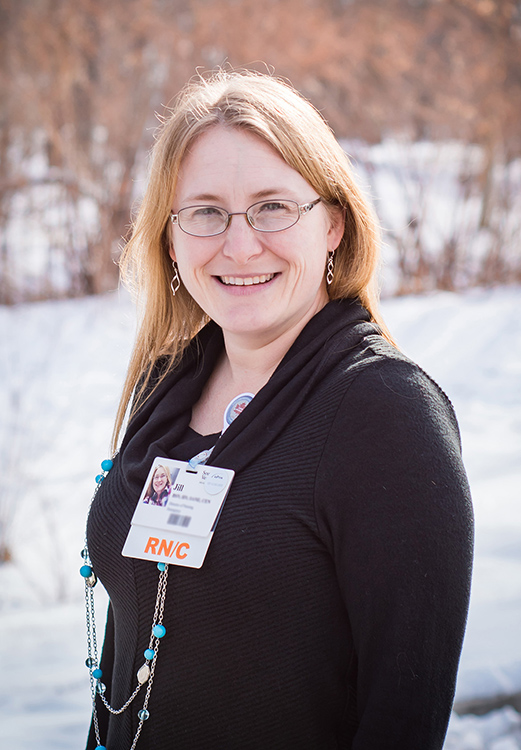
One critical focus of PUCK is ensuring that a child who is admitted receives appropriate, ongoing follow up care and treatment, where they may not have received a transition plan after being discharged from the emergency department. Maynard said that prior to PUCK, “Over 80% of [children who present at the ED in crisis] were being discharged back home, into the community…” without any kind of treatment plan. Taylor Zimmerman, Family Emergency Services Therapeutic Case manager at UCS, said that one aspect of PUCK that brings her satisfaction is seeing “… a child going from having no support to receiving wrap-around care.”
PUCK hits particularly close to home for Sandy Matteson, who is a staff member of UCS and a parent of a young child with autism spectrum disorder. According to Matteson, her child began having difficulty regulating his emotions and behaviors in kindergarten, and experiencing challenges in learning and absorbing information. Last fall, her child was transported to PUCK after having a crisis at school. PUCK was able to immediately address his needs in a safe and supportive environment.
According to Matteson, since being discharged from PUCK, her child’s behavioral issues have improved significantly. “Because of PUCK, [the behavioral issues] stopped. I can’t express how relieved I am, how grateful I feel, and how just downright lucky that everything fell into place.” Matteson paused for a beat, then said, “It’s not luck. It’s planning because they planned this out.”
When Matteson was asked if her child would have been on track to end up in the ED: “Yes … It would have been just a totally traumatic experience, the whole thing.”
Thoughts from United Counseling Service staff on PUCK’s impact
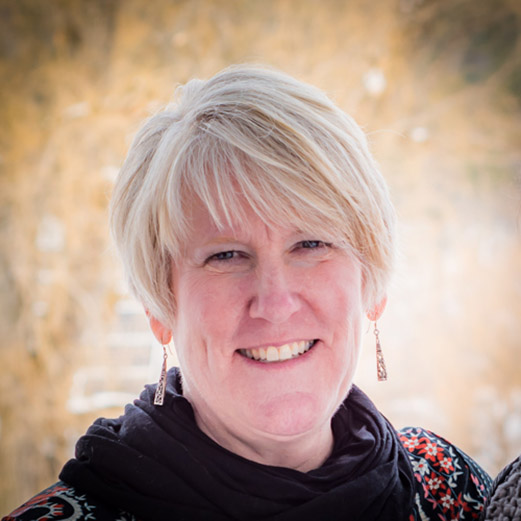
We are now able to provide the right care in a therapeutic environment that improves outcomes for children and reduces cost.

[It is] … unprecedented prior to PUCK that a child would get all the services they needed in one day – effectively.

An aspect of PUCK that brings me satisfaction: seeing a child going from having no support to receiving wrap-around care.
Ethan Therrien, UCS staff member and emergency services clinician, said that it is “unprecedented prior to PUCK that a child would get all the services they needed in one day – effectively.”
The response model to a child in distress has changed to a child and family centered, recovery-oriented, trauma-informed approach, with rapid support for the child in question, and a focus on wrap-around care. This model complements OneCare Vermont’s goals focusing on strategies to create systems of better coordinated care, help people get care in the right place, and reduce unnecessary high cost care.
“We are now able to provide the right care in a therapeutic environment that improves outcomes for children and reduces cost,” said Mattern.
UCS leadership hopes to expand PUCK to include older children and adults. One of PUCK’s long terms goals is to serve as a model for Vermont. The grant from OneCare is for 2020, and UCS is exploring opportunities for future funding.
For more information:
To learn more about UCS, visit: ucsvt.org. To learn more about Southwestern Vermont Health Care, visit https://svhealthcare.org.
Learn more about how Innovation Fund grant works: https://www.onecarevt.org/apply-to-the-aco-innovation-fund-second-round
Learn about other Innovation Fund recipients: https://www.onecarevt.org/innovation-fund-round-2/
For more information on the Innovation Fund, please contact: InnovationFund@onecarevt.org.
Other questions or comments? Please contact Alice Wack, Marketing and Communications Strategist at OneCare Vermont. alice.wack@onecarevt.org | 802-847-1346

